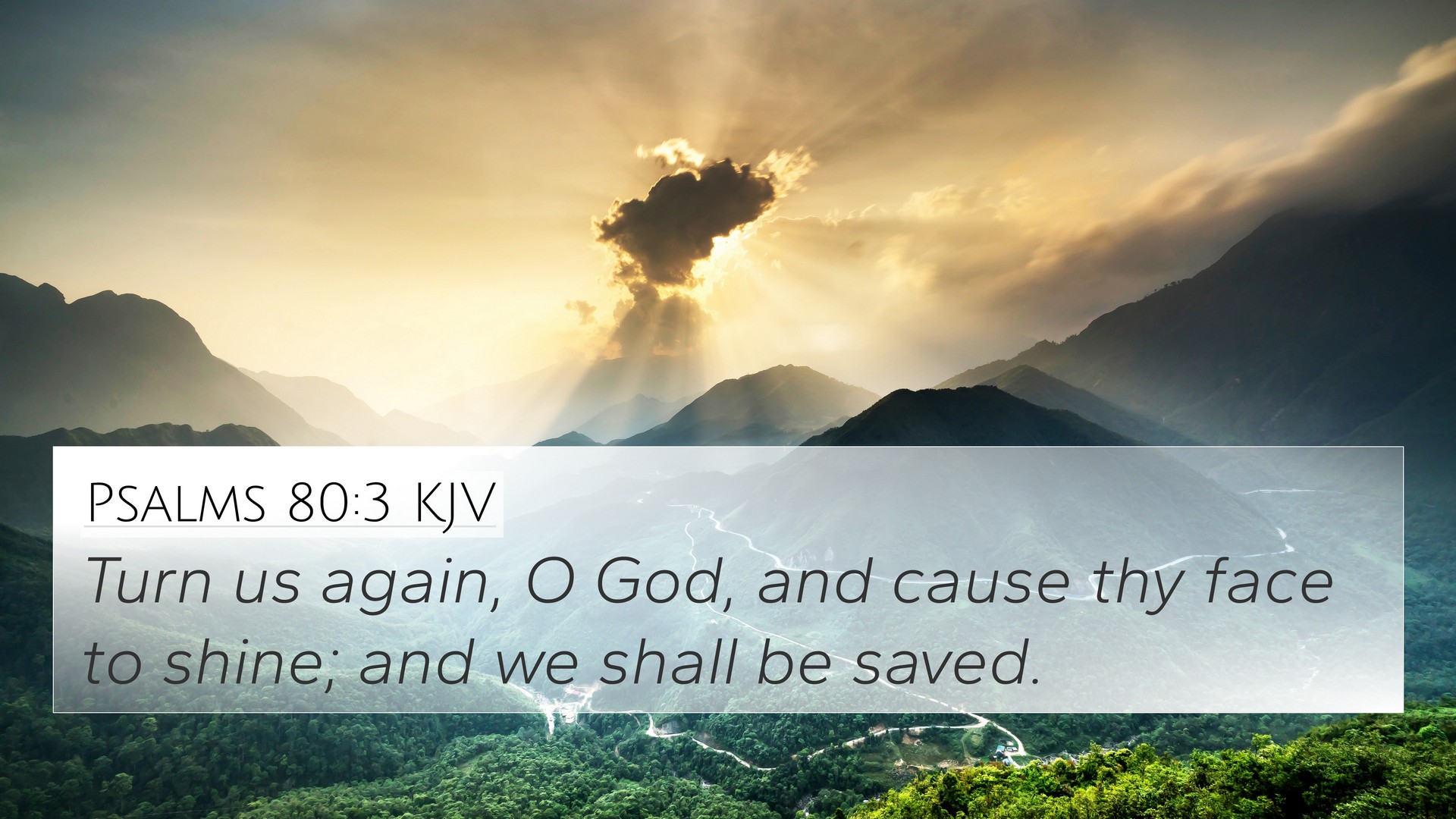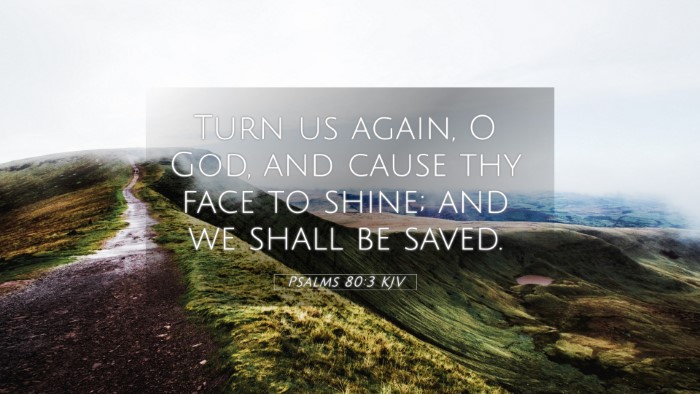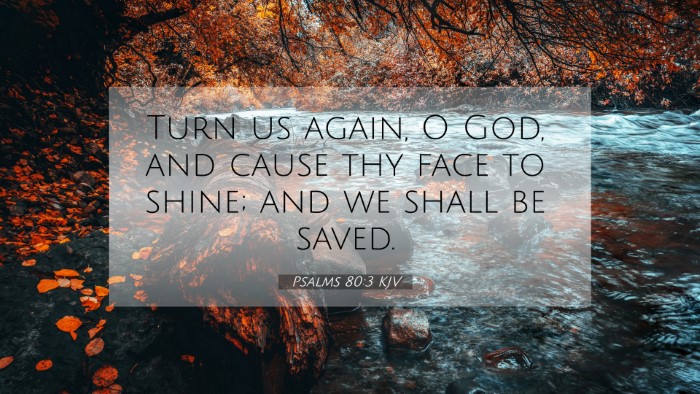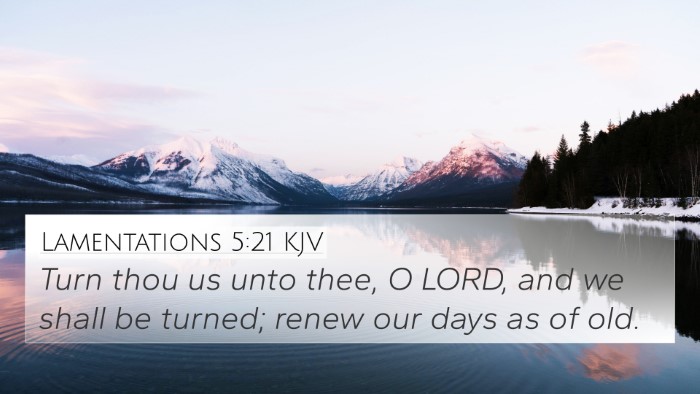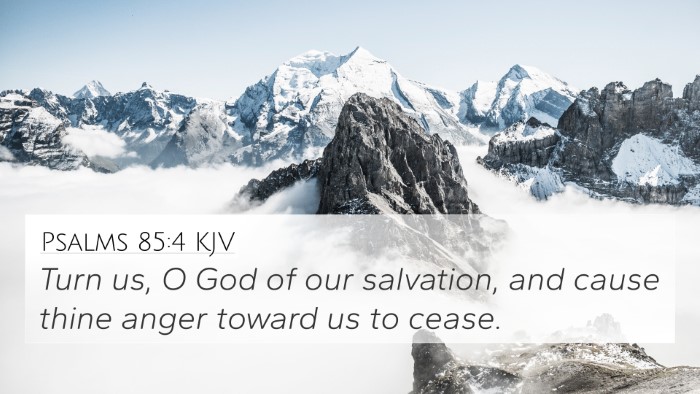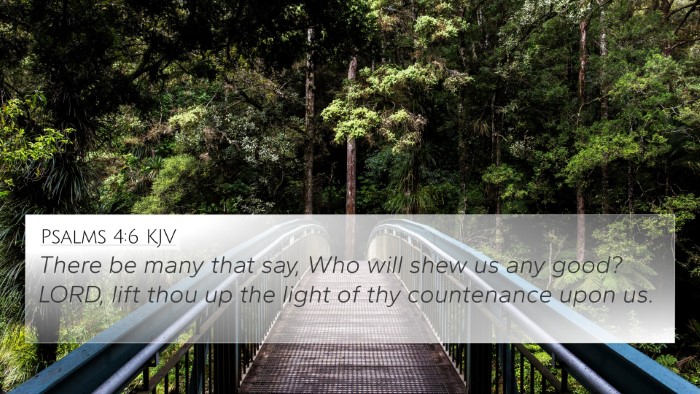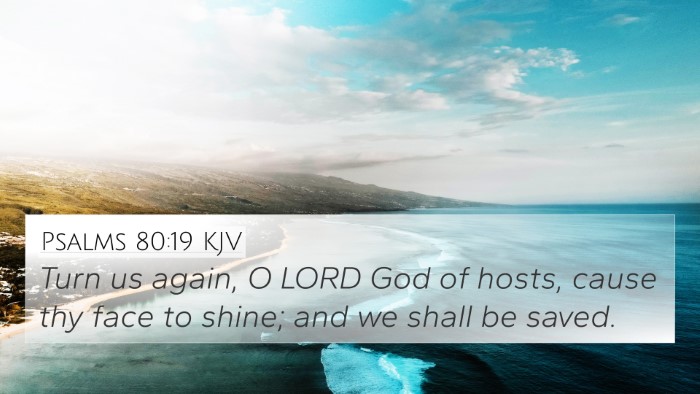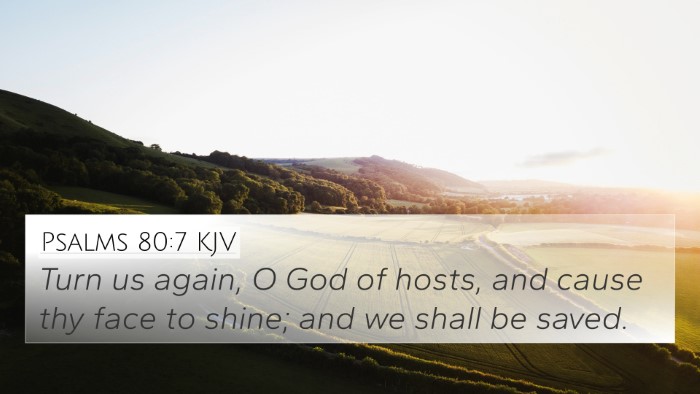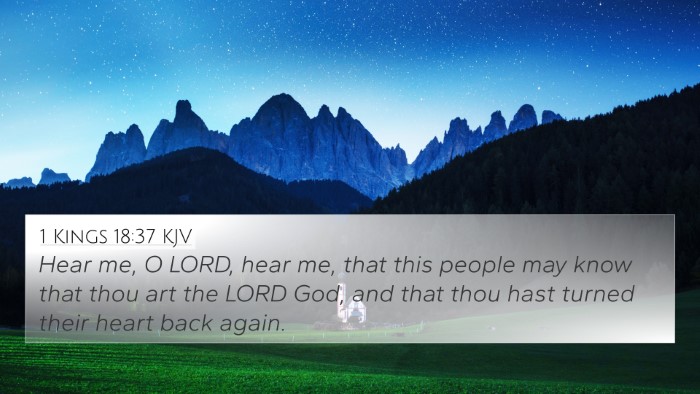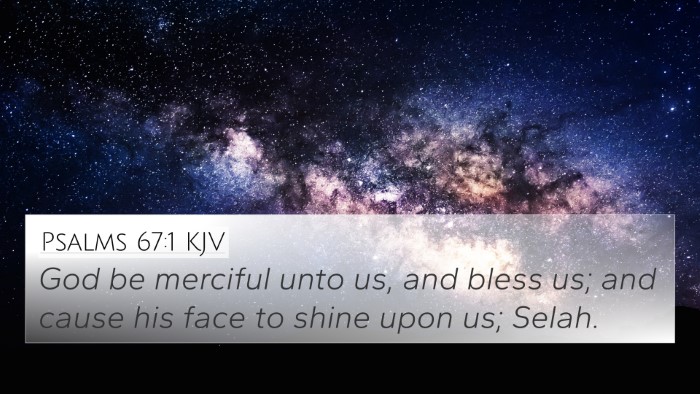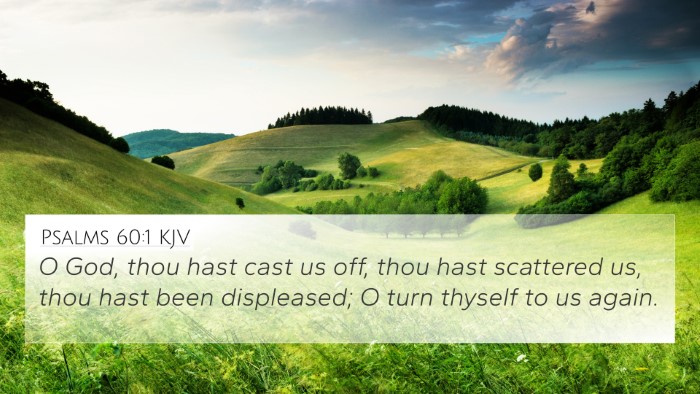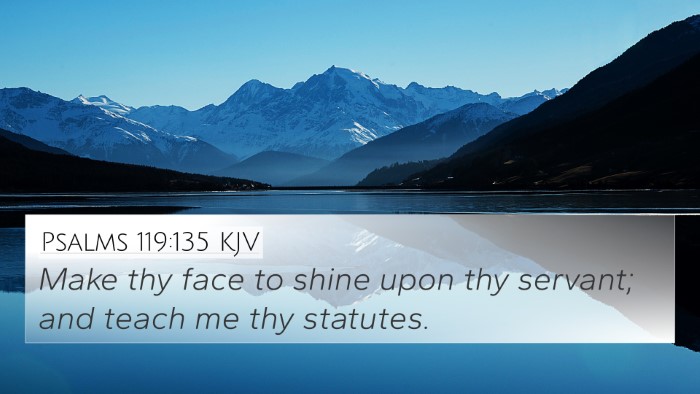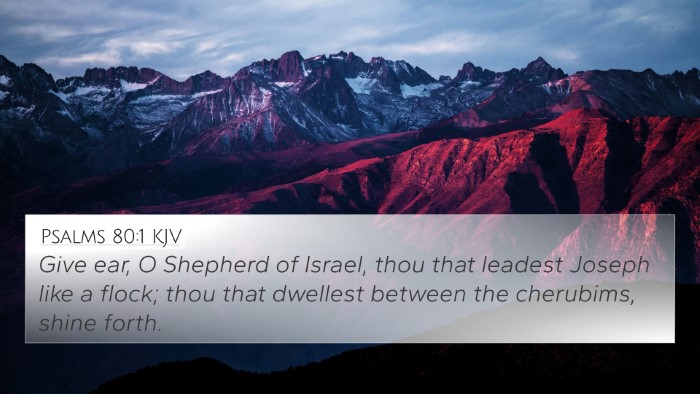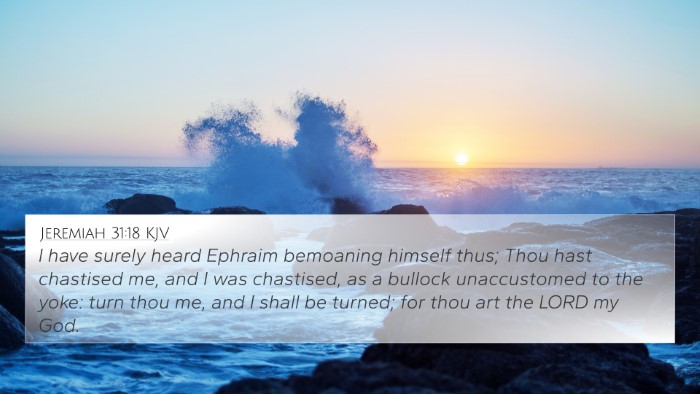Psalms 80:3 - Biblical Meaning and Interpretation
Psalms 80:3 reads, "Restore us, O God; make your face shine on us, that we may be saved."
This verse is a heartfelt plea for divine restoration and intervention. The Psalmist, representing the people of Israel, calls out to God for revival and deliverance in a time of distress. Below, we summarize insights from noted public domain commentaries.
Interpretation and Summary
Contextual Significance:
The context of Psalms 80 indicates it is a communal lament. The psalmist emphasizes a collective experience of anguish and a pressing need for restoration. The use of "God" reflects an acknowledgment of His sovereignty and power in bringing about redemption.
Key Insights from Commentaries:
-
Matthew Henry: Highlights the urgency of the plea for restoration. Henry notes that “God’s face shining” is a metaphor for His favor and presence, essential for spiritual rejuvenation.
-
Albert Barnes: Explains that the request for restoration implies that the people had strayed from God. Barnes emphasizes the necessity of God's grace for salvation, advocating for humility and recognition of God's role in their lives.
-
Adam Clarke: Focuses on the historical context of Israel’s suffering, attributing their turmoil to their disobedience. Clarke argues that the plea is not just for physical salvation but spiritual enlightenment through God's presence.
Thematic Connections to Other Scriptures
This passage can be related to several other Bible verses that explore themes of restoration and divine intervention. Below are cross-references that elaborate on similar themes:
- 2 Chronicles 7:14: “If my people, who are called by my name, will humble themselves and pray…” - A call for humility and prayer as a pathway to restoration.
- Isaiah 64:1: “Oh, that you would rend the heavens and come down…” - A plea for God’s presence amidst distress.
- Jeremiah 30:17: “But I will restore you to health and heal your wounds…” - A promise of restoration from God after suffering.
- Lamentations 5:21: “Restore us to yourself, O Lord, that we may be restored…” - Another similar cry for restoration and reconciliation with God.
- Matthew 11:28: “Come to me, all you who are weary and burdened, and I will give you rest.” - A New Testament appeal for all who seek relief in Christ.
- James 4:8: “Draw near to God, and He will draw near to you.” - An invitation for believers to pursue God’s presence for restoration.
- Romans 12:2: “Do not conform to the pattern of this world, but be transformed by the renewing of your mind.” - A transformative process linked to submitting to God’s will.
- Psalms 51:10: “Create in me a clean heart, O God, and renew a right spirit within me.” - A personal plea for cleansing and restoration, echoing the sentiment of Psalms 80:3.
- Zechariah 1:3: “Therefore say to them: ‘Thus says the Lord of hosts: Return to me, says the Lord of hosts, and I will return to you.’” - An invitation to reconciliation with God, affirming His readiness to restore.
Conclusion
Psalms 80:3 embodies a universal yearning for divine intervention and restoration. The themes explored in this verse resonate throughout scripture, particularly concerning God's readiness to restore those who call upon Him. In performing comparative Bible verse analysis, one can observe a consistent call for repentance and an appeal to God's mercy found in both the Old and New Testaments.
Utilizing Cross-References
Understanding how Psalms 80:3 interacts with other scriptures enriches the study of the Bible. Tools for Bible cross-referencing provide valuable pathways to discover thematic connections and enhance personal and group Bible studies.
This scripture serves as a critical anchor for recognizing how God’s face shining upon us can transform our circumstances, echoing throughout Biblical texts and relating to our contemporary expressions of faith.
Final Thoughts
In exploring the depth of Psalms 80:3, individuals seeking a deeper understanding can use Bible reference resources and Bible cross-reference guides to uncover the vast inter-Biblical dialogue that expands on the theme of restoration throughout scriptures.
